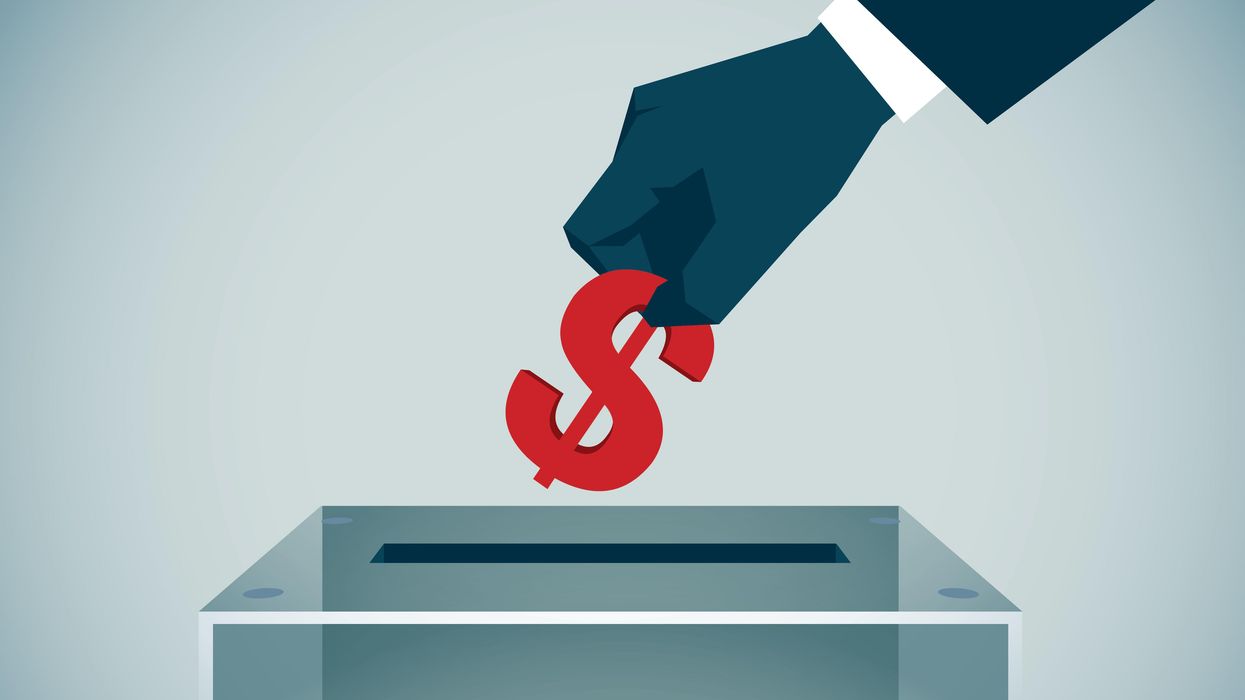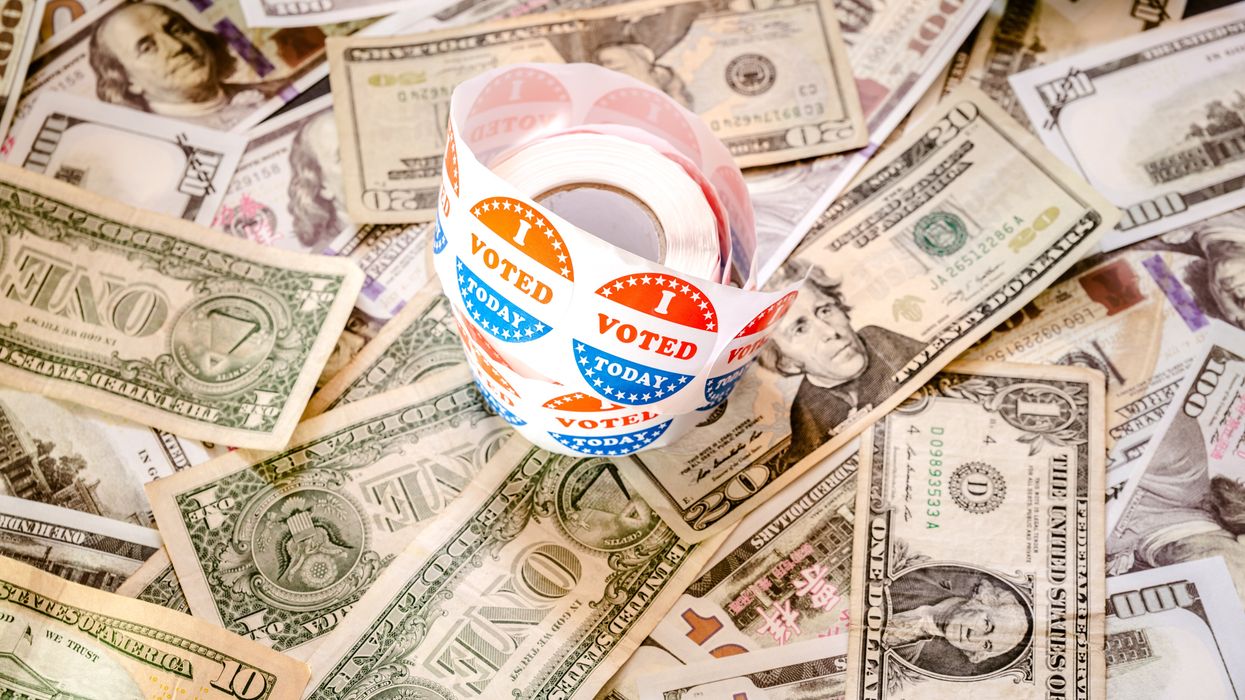Over several decades, fringe ideas have grown in popularity to reach the crescendo of noise we have today. Truth and facts are routinely dismissed by half the country (progressive and conservative!) and societal trust is very low. We may be witnessing the decline of the American Empire, or on a more optimistic note it could be the clearing we need for the United States to live into the promise of the founders — a multiracial, pluralistic democratic republic.
At the heart of the matter there lies a disjointed group of savvy marketing people who have created a highly profitable business by dividing society against itself. This “business of breaking” was perfectly timed to take advantage of many societal-changing innovations like the internet, email, social media and most recently artificial intelligence. Ironically It is the democratization of information where discerning truth from lies became more difficult.
The business of breaking (us apart) first came into public view as a talk-radio phenomenon in the 1990s with entertaining rhetoric. It was then supercharged with email, social media and news platforms that shape our world view. With the arrival of the digital age, fringe believers and societal cynics who would otherwise have remained isolated from each other were connected, allowing them to amass formal power and change society. As a result, we have witnessed a growing community of misfits and malcontents become mainstream, while most community members are everyday Americans trying to get by with a little help from their friends. A few are the social influencers and content creators, which we will call conflict profiteers, who are shaping the stories we tell about ourselves and dividing us to “win” at a game of money and influence.
Conflict profiteers have found willing followers for their messages of grievance, victimhood, blame and shame, righteous indignation, condescension, and flagrant disrespect for institutions like the government, police, corporations and social services. They are laughing all the way to the bank with their profits and influence. Most conflict profiteers share a pearl of truth in their storytelling, but their rhetoric is carefully crafted to attract and keep their audience’s attention through unsavory means. A 2009 expose from a talk show producer reveals the dark underbelly of what he learned in the 1990-2000s.
The First Amendment is often used as a shield from accountability with claims of “censorship” protecting content that would accurately be called disinformation or propaganda. Conflict profiteers are defending their right to lie to their audience. This perversion of our First Amendment is only now seeing accountability in civil cases against Alex Jones, Rudy Giuliani and Fox News. Despite these landmark awards to those harmed by disinformation, the business of breaking us apart is alive and growing in profitability. It’s time to disrupt their business model, using coordination, education and disincentives.
The business of breaking has interrelated components that are woven through our American lives. The primary three components are:
- Conflict profiteers who generate mis-, dis- and mal-information (MDM) to generate revenue and do so under the guise of First Amendment protections.
- Big tech uses algorithm programming and AI integration to optimize and rapidly spread popular information to gain attention and subsequent advertising revenue without consideration of context, facts and truthfulness.
- Adversaries of the United States, specifically Russia, China and Iran in the 2024 election cycle, who provide MDM and funding for conflict profiteers to spread their propaganda and take advantage of the algorithms.
Together, these three proponents are weakening Americans' belief in democracy and willingness to participate in civic life. While we have spent a decade (or more) hand-wringing and building strategies to blunt the effects, we have not yet considered how to solve our shared challenge through economic means.
It is time to be proactive and approach the business of breaking with business solutions
When considering the economics that have allowed the conflict profiteers and big tech to prosper, several points of impact are needed to change incentives and eliminate profiteering.
- Monetary: Change the incentive. Conflict profiteers are in it for the money and influence. How could they make money by strengthening democratic principles, increasing social cohesion and providing truthful information? An example in Africa paid poachers to guard the animals they formerly hunted for profit.
- Health: Work with big tech to increase healthy human factors into algorithms and AI interfaces that also provides financial benefits to their companies. Disincentivize “attention” economy drivers.
- Security: Publicize government sanctions to foreign states and nationals for their participation in and allowance of disinformation campaigns around U.S. politics. Prosecute individuals as a deterrent to others.
- Societal cohesion: Promote and reward media literacy, developing networks of “Trolls4Good” to counter any lingering MDM.
Who is working on these or other plans to disrupt the business of breaking? When asked a series of questions, Perplexity AI offered these answers:
Several organizations and initiatives are already working on implementing strategies to disrupt the business model of divisive content creators:
- Algorithm adjustments: Social media platforms like Facebook and Twitter have made efforts to adjust their algorithms to reduce the spread of divisive content.
- Demonetization policies: YouTube has implemented stricter content policies that demonetize certain types of controversial content.
- Transparency in sponsorships: The Federal Trade Commission (FTC) in the United States requires influencers to disclose sponsored content clearly.
- Promote quality over quantity: Organizations like the Stevens Initiative focus on fostering cross-cultural understanding and developing critical skills through virtual exchanges.
- User education: MediaSmarts, Canada's not-for-profit centre for digital media literacy, advocates for digital literacy education to address the digital divide.
- Alternative monetization models: Platforms like Patreon and Substack offer alternative ways for creators to monetize content based on subscriptions rather than engagement.
- Collaborative content initiatives: The Reunited States Project (RSP) uses various media to showcase organizations and thought leaders who embody the principle of "out of many, one".
- AI-powered content moderation: Companies like Cortico, in cooperation with the MIT Media Lab, are building systems to analyze and connect community conversations at scale.
These initiatives demonstrate ongoing efforts to address the challenges posed by divisive content creation and promote more constructive online environments.
You can see the sources that Perplexity AI used to create a list of actively engaged entities working to disrupt the business of breaking. Upon reviewing the list, only one organization in strengthening democracy space, via Bridge Alliance and The Fulcrum, is listed: The Reunited States Project, a documentary film that references the bridging community and was filmed in 2018-2019 and released in 2021.
I end this essay with two questions, for which I’d love to hear from you.
- Do you know anyone who is actively working to disrupt the business of breaking?
- Are you willing to invest effort or resources to support disrupting the business of breaking?
Please be in touch, as our nation depends upon us. Email debilyn@AmericanFuture.us.
Molineaux is the lead catalyst for American Future, a research project that discovers what Americans prefer for their personal future lives. The research informs community planners with grassroots community preferences. Previously, Molineaux was the president/CEO of The Bridge Alliance.




















Marco Rubio is the only adult left in the room